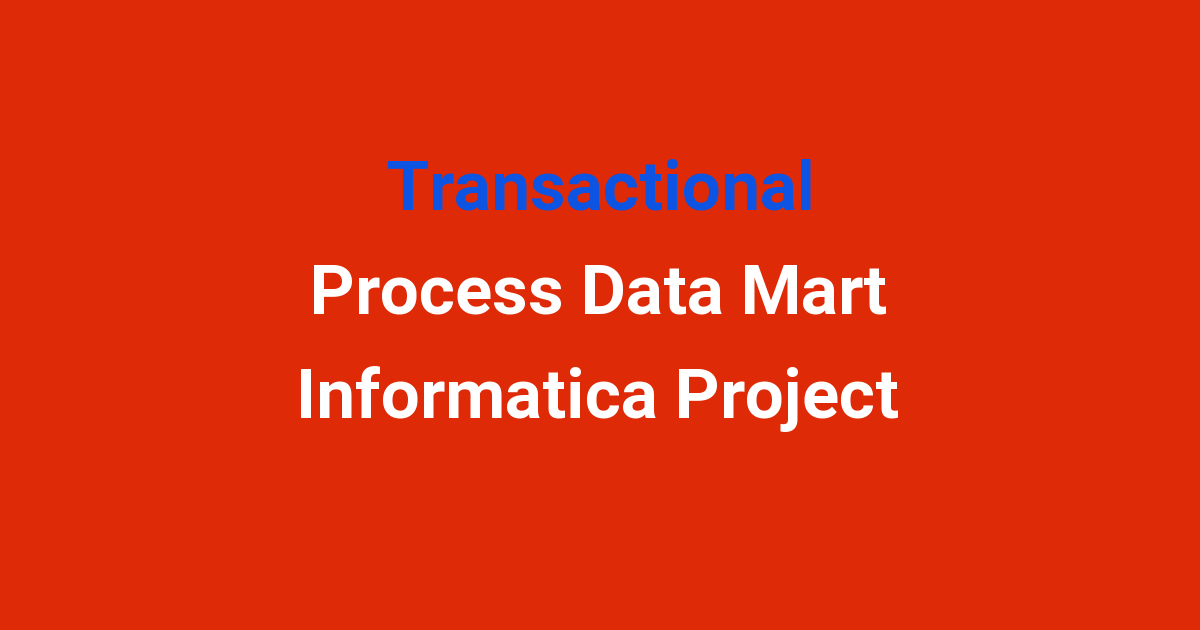Informatica project for a transactional process data mart.
Transactional Process Data Mart Informatica Project
Introduction
In today’s fast-paced business environment, organizations are dealing with enormous amounts of data on a daily basis. This data needs to be processed efficiently in order to make strategic decisions and stay ahead of the competition. One of the key tools that organizations use to manage and analyze their data is a data mart.
A data mart is a subset of a data warehouse that is focused on a specific function or department within an organization. It provides a way to store and organize data in a way that is optimized for analysis and reporting. In this project, we will focus on building a transactional process data mart using Informatica, a popular ETL (extract, transform, load) tool.
Problem Statement
The existing system that the organization is using to manage its transactional data is inefficient and outdated. The system is unable to handle the volume of data being generated, resulting in slow processing times and inaccurate reporting. This is impacting the organization’s ability to make timely and informed decisions based on their data.
Existing System
The existing system used by the organization is a traditional relational database management system (RDBMS). While RDBMS systems are reliable and robust, they are not optimized for handling large volumes of transactional data. The system struggles to process the data in a timely manner, leading to delays in reporting and analysis.
Disadvantages
– Slow processing times
– Inaccurate reporting
– Inability to handle large volumes of data
– Lack of flexibility in data analysis
– Difficulty in integrating data from multiple sources
Proposed System
The proposed system for managing the organization’s transactional data is a transactional process data mart built using Informatica. Informatica is a powerful ETL tool that is designed to handle large volumes of data and perform complex transformations on that data. By using Informatica to build a data mart, the organization will be able to process their transactional data more efficiently and accurately.
Advantages
– Faster processing times
– More accurate reporting
– Scalability to handle large volumes of data
– Increased flexibility in data analysis
– Ability to integrate data from multiple sources
Features
Some of the key features of the transactional process data mart built using Informatica include:
– Data extraction: the ability to extract data from multiple sources, including databases, files, and APIs
– Data transformation: the ability to perform complex transformations on the data, such as aggregations, calculations, and joins
– Data loading: the ability to load the transformed data into the data mart in an efficient and structured manner
– Data modeling: the ability to design the data mart schema in a way that is optimized for reporting and analysis
– Data governance: the ability to enforce data quality and security standards throughout the data processing pipeline
Conclusion
In conclusion, building a transactional process data mart using Informatica is a strategic investment for organizations looking to improve their data management and analysis capabilities. By moving away from traditional RDBMS systems and adopting a more modern and efficient approach to managing transactional data, organizations can gain a competitive edge in today’s data-driven business environment. With faster processing times, more accurate reporting, and increased flexibility in data analysis, the organization will be better equipped to make timely and informed decisions based on their data.

